A Comprehensive Guide to Final Mile
In today's competitive business environment, efficient operations in the final mile are crucial for success. This guide explores how strong logistics solutions can streamline your operations and boost customer satisfaction.
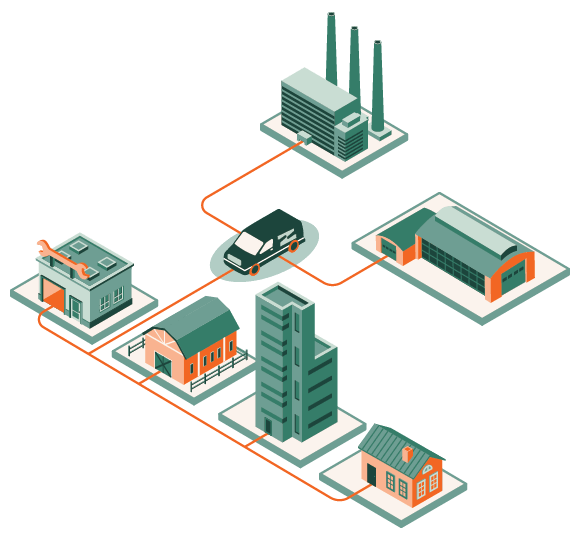
Last Mile in Logistics
What are Final Mile Services?
Final mile services represent the final leg of a product's journey, delivering it directly from a distribution center or warehouse to the end customer's doorstep. It's the crucial touchpoint that turns a satisfied online shopper into a loyal repeat customer. However, final mile, or last mile, delivery is more than just getting a package from point A to point B. It involves efficient routing, real-time tracking, and ensuring a positive delivery experience.
Imagine a product journey as a series of connected steps. Raw materials are passed from one stage (supplier) to the next (manufacturing) until they reach the finished product stage. Supply chain logistics manage this entire process, ensuring a smooth flow of goods from origin to final destination. Last mile services are the concluding step in this chain, delivering the product directly to the customer.
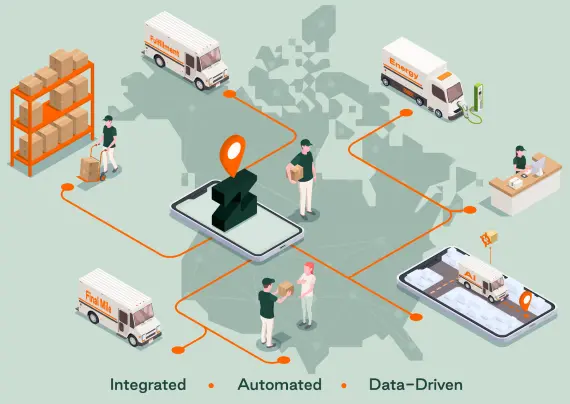
The Evolution of Logistics
Traditionally, logistics involved a linear supply chain with limited flexibility. Products would move from a central warehouse to regional distribution centers and then to retailers. This model struggled to keep pace with the rise of e-commerce and the growing demand for faster, more personalized delivery options.
Modern distribution services are dynamic and adaptable. They cater to the demands of a global marketplace and the needs of online shoppers. Technology plays a vital role in this evolution. Artificial intelligence (AI) is used to optimize delivery routes, predict changes in demand, and streamline the entire fulfillment process. Data-driven delivery allows for real-time tracking, exception handling, and proactive communication with customers, ensuring a seamless delivery experience.
Industry-Specific Solutions
Agriculture and automotive industries often require time-sensitive deliveries. Final mile services can offer solutions like same-day delivery, early morning deliveries for just-in-time manufacturing needs, and overnight options to meet critical deadlines.
The fast-paced world of e-commerce demands efficient order fulfillment. Distribution centers can be equipped for high-volume picking and packing, utilizing advanced technology to streamline the process and ensure accuracy.
Delivering perishable goods requires a specialized approach. Final mile services can provide cold chain storage and transportation solutions to ensure temperature-sensitive products like food and pharmaceuticals maintain optimal conditions throughout their journey.
Industry Solutions
By understanding the unique needs of each industry, final mile service providers can develop customized distribution solutions that optimize efficiency, minimize costs, and ultimately enhance customer satisfaction. This industry-specific approach ensures your products reach their destination on time, in perfect condition, and aligned with your specific business goals.
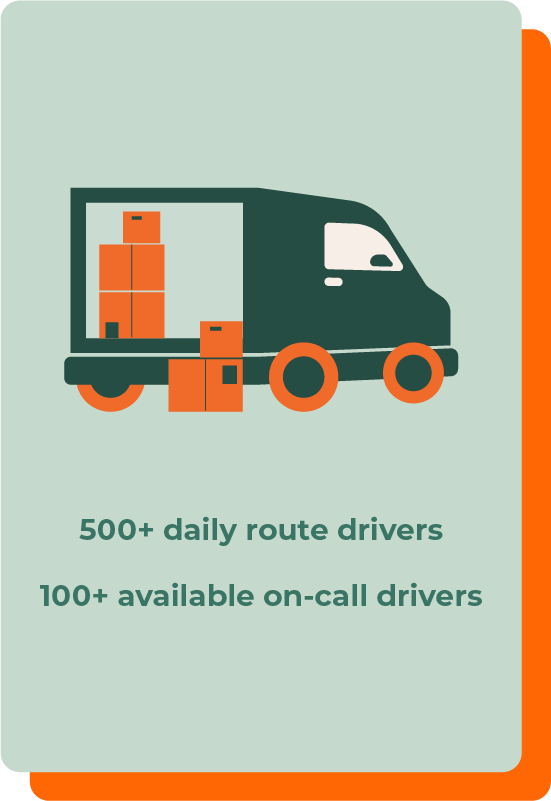
Why Use Final Mile Fulfillment?
Outsourcing your distribution needs to a final mile service provider offers several key benefits:
-

Increased efficiency. Final mile and logistics service providers have the expertise and infrastructure to streamline your order fulfillment process, saving you time and resources in areas like warehousing, picking & packing, and last-mile delivery.
-

Cost savings. Leverage a logistics network's economies of scale to reduce overhead costs associated with warehousing, transportation, and labour. You gain access to established carrier networks and negotiated rates, which can be significantly more affordable than managing your own delivery fleet.
-

Scalability. Easily adapt your operations to meet fluctuating demand. Managed logistics services can grow with your business, handling increased order volume during peak seasons without needing to make significant investments.
-

Access to expertise. Benefit from the knowledge and experience of logistics professionals. They can handle the complexities of logistics, ensuring your products are delivered safely and on time.
-

Improved customer experience. Faster delivery times, real-time tracking, and convenient delivery options all contribute to a more positive customer experience. This leads to increased customer satisfaction, loyalty, and repeat business.
-

Focus on core business. Free up your time and resources to focus on what you do best, whether it's product development, marketing, or customer service. By outsourcing your delivery needs, you can dedicate your energy to growing your core business activities.
Distribution vs. Dedicated Delivery
Business Delivery Solutions
Final mile delivery can be achieved through two main approaches. You might know shipping to traditionally fall under distribution and dedicated delivery services, but at Ziing, we refer to them as Co-Load and Exclusive ecosystems. Understanding the difference between these options can help businesses choose the most suitable solution for their needs.
Distribution Services
Co-load, or distribution services, leverage a network of fulfillment centers, transportation providers, and technology to deliver products to customers. Businesses share space on assets and utilize established carrier routes, offering a cost-effective solution with moderate control over scheduling and routing. This approach is ideal for companies with predictable shipping needs and moderate volume, where speed is important but ultimate customization isn't essential.
Dedicated Delivery
Exclusive, or dedicated delivery, offers businesses complete control over the final mile process. Companies utilize their own fleet of vehicles and drivers, allowing for customized scheduling, routing, and branding opportunities. This premium service is ideal for businesses that ship high-value goods, have specific delivery requirements (like temperature control), or require maximum brand consistency throughout the delivery experience.
It's important to note that the last mile landscape is increasingly shaped by the concept of shipping ecosystems. These ecosystems are networks of businesses and technologies that work together to facilitate efficient and cost-effective product delivery.
Final Mile Models
1. Exclusive Fleet
Dedicated Trucking
This premium option provides dedicated assets and drivers for your shipments. You have complete control over scheduling, routing, and delivery timeframes. This model is ideal for businesses with:
-
High-value goods that require extra security and control during transport.
-
Specific delivery requirements, such as temperature-controlled environments for perishables.
-
A need for maximum brand consistency, where utilizing vehicles with your company logo reinforces brand identity during delivery.
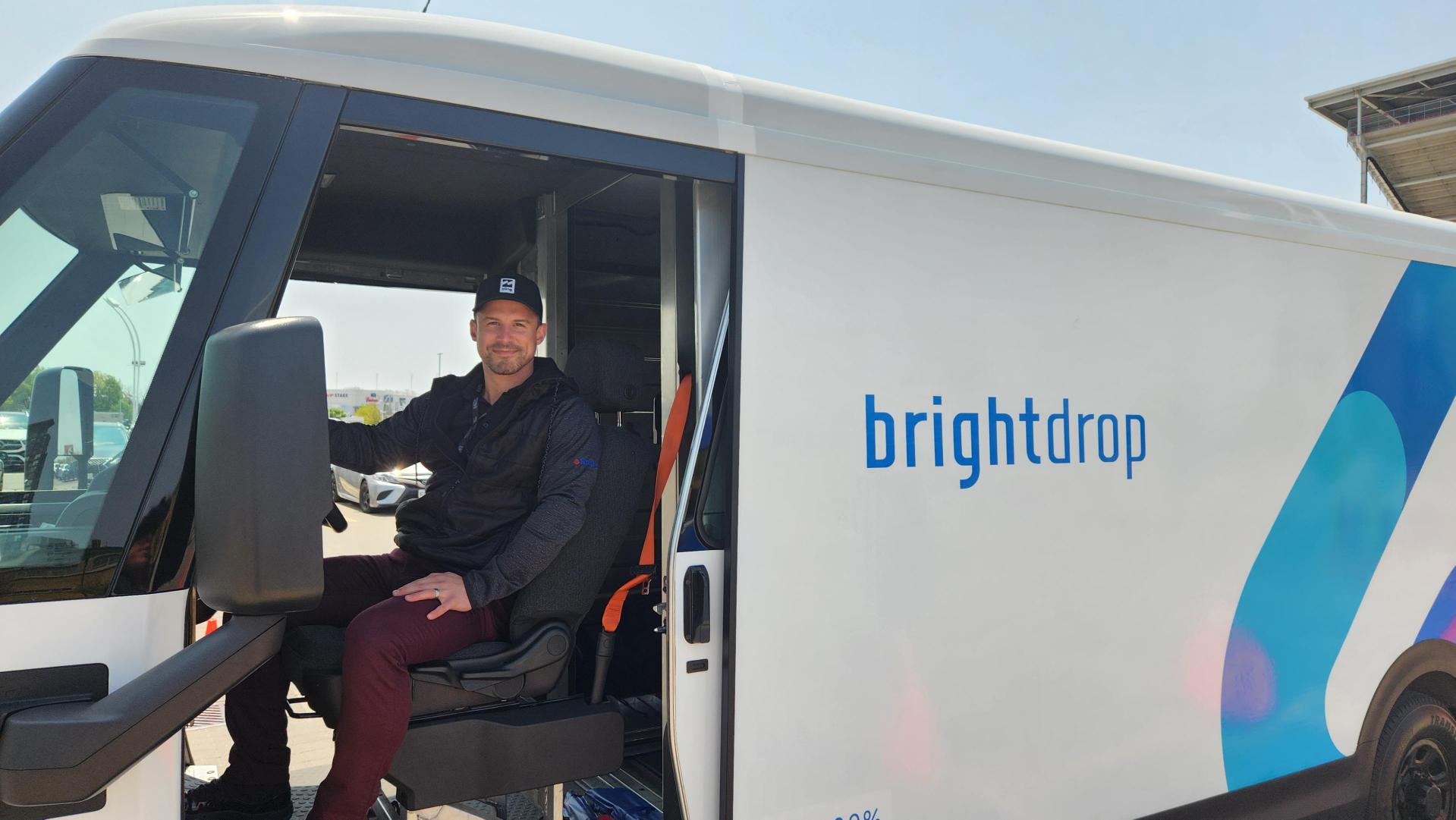
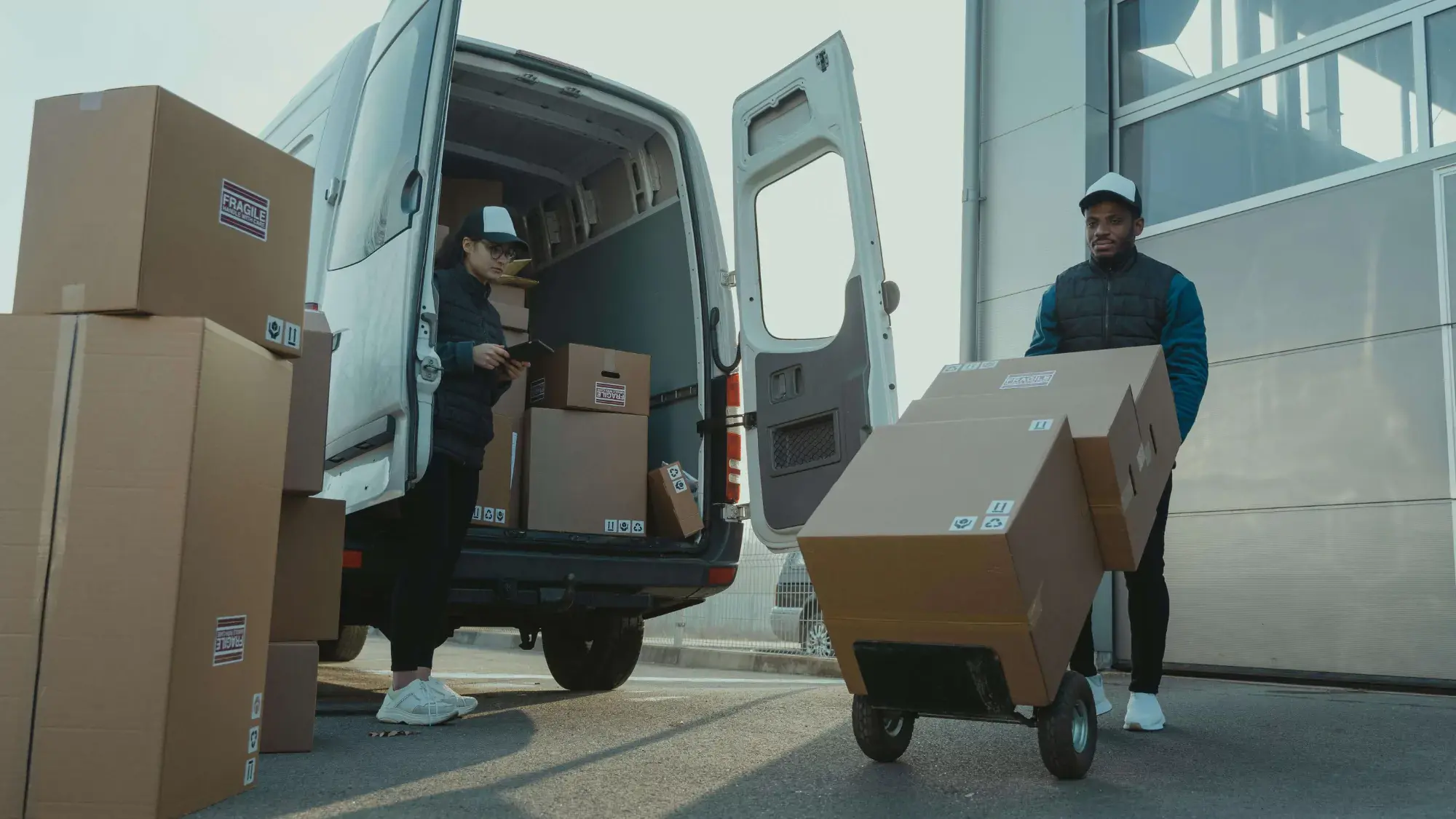
2. Fractional Ecosystem
Shared Trucking
This option allows businesses to share space on assets with other companies heading in similar directions. This approach offers a balance between affordability and control over scheduling and delivery times. It's ideal for businesses with:
-
Predictable shipping needs and moderate volume.
-
A need for efficient delivery at a competitive cost.
-
A focus on speed where faster delivery times are important, but complete customization isn't essential.
3. Co-load System
Common Carrier Network
This is the most affordable final mile delivery model. It utilizes existing carrier networks and established delivery routes, offering limited control over scheduling and routing. This option is ideal for businesses with:
-
Non-critical deliveries where speed is not a major concern.
-
Bulkier items or products with longer lead times that don't require expedited delivery.
-
A focus on cost-effectiveness, where prioritizing affordability outweighs the need for customization.
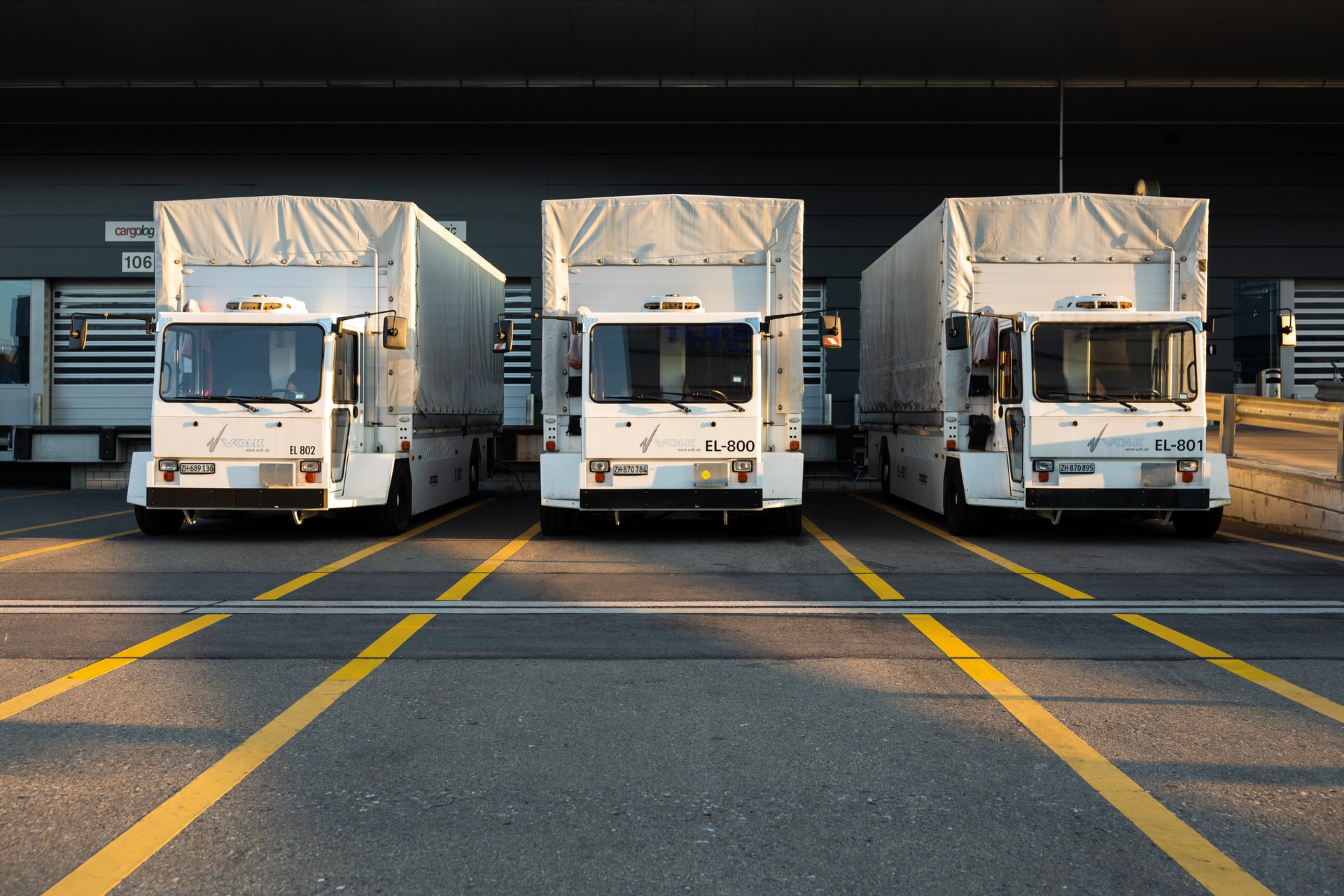
The Power of National Shipping
Shipping ecosystems bring together various players within the final mile landscape to create a comprehensive and efficient delivery network. Here's how it works:
Carriers

These are the transportation companies that physically move the goods, such as trucking companies, freight forwarders, and postal services. Providers partner with a variety of carriers to offer a range of transportation options based on your specific needs (ground, air, expedited).
Technology Providers

These companies provide the software and technology that powers the entire distribution process, including warehouse management systems (WMS) for inventory control, order tracking software for real-time shipment visibility, and data analytics tools for route optimization and continuous improvement.
Fulfillment Centers

Strategically located warehouses play a crucial role in efficient delivery. Logistics providers leverage a network of fulfillment centers nationwide, ensuring optimal inventory placement and faster delivery times for your customers.
Value-add Service Providers

These companies offer additional services to enhance the delivery experience, such as labeling, packaging customization, and returns processing. Providers can help you explore various value-add service options to further streamline your fulfillment process.
By collaborating within a shipping ecosystem, logistics and final mile service providers can offer a comprehensive, tailored distribution solution for your business. They leverage the strengths of various partners to provide you with cost-effective options, efficient delivery networks, and access to the latest technology for a seamless final mile experience.
Mastering Supply Chain Management
A product's journey from raw materials to the customer's doorstep involves a complex series of steps. Supply chain management focuses on overseeing this entire journey, ensuring a smooth flow of goods at every stage. Traditionally, supply chain management is broken down into three key segments:
-
First-mile delivery: This refers to the movement of raw materials from suppliers to the manufacturing facility.
-
Mid-mile delivery: This stage involves the transportation of finished goods from manufacturing plants to distribution centers.
-
Final-mile delivery: This is the final leg of the journey, where products are delivered directly to the end customer.
By effectively managing each of these stages, businesses can optimize their supply chain for efficiency, cost savings, and improved customer satisfaction.
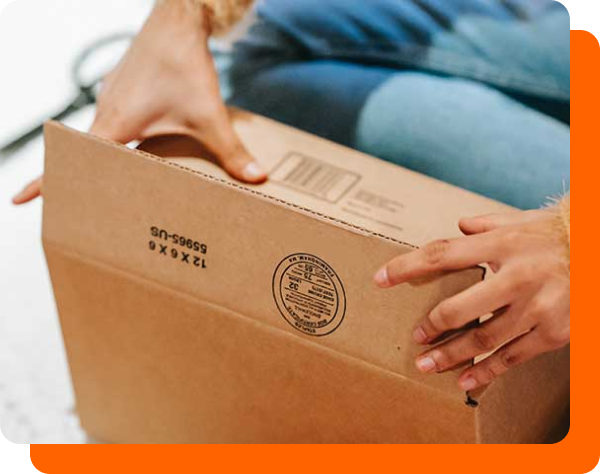
The Logistics Process
When you partner with a final mile service provider, they handle the complexities of the fulfillment process on your behalf. Here's a breakdown of the key steps involved:
-
Order processing: Once a customer places an order through your online store or other sales channel, the order details are electronically transmitted to the distribution service provider's system. This ensures seamless integration and eliminates manual data entry errors.
-
Inventory management: Inventory plays a critical role in efficient order fulfillment. The distribution center uses a Warehouse Management System (WMS) to track and manage inventory levels. This software ensures accurate record-keeping of stock, optimizes storage space utilization, and helps prevent stockouts. With a WMS in place, the distribution service provider can accurately confirm order availability and avoid delays.
-
Order fulfillment: When an order is verified and confirmed, the picking process begins. Warehouse associates utilize the WMS to locate the ordered items within the facility. They then carefully pick and pack the correct items according to the order details. Strict quality control procedures are implemented throughout the process to ensure accuracy and prevent errors.
-
Transportation & delivery: Once the order is packed, the distribution service provider determines the most efficient and cost-effective transportation method based on factors like weight, distance, and desired delivery speed. They leverage their network of carriers and established routes to ensure timely product movement.
For the final-mile delivery stage, the distribution service provider utilizes last-mile delivery strategies to ensure the safe and accurate arrival of your products at the customer's location. This may involve route optimization software to plan efficient delivery schedules, multi-stop deliveries to consolidate routes, and real-time tracking capabilities to provide customers with updates on their orders.
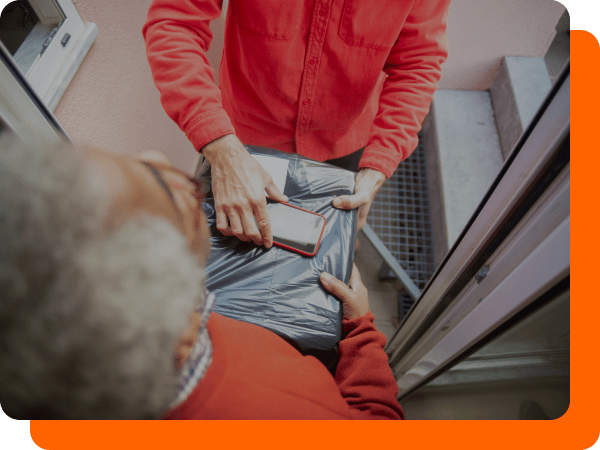
Reverse Logistics
While final mile delivery focuses on getting products to customers, there's another crucial aspect of the supply chain: reverse logistics. This term refers to the management of returned goods, handling the entire journey of products traveling back from the customer to the seller or manufacturer. Reverse logistics encompasses various scenarios, including:
-
Customer returns: This is the most common scenario, where customers return unwanted or defective items.
-
Product recalls: When a safety issue necessitates retrieving products from the market, efficient reverse logistics are essential.
-
End-of-life product management: This involves collecting and processing used or expired products in an environmentally responsible manner.
Benefits of
Reverse Logistics Services
Outsourcing reverse logistics to a dedicated service provider offers several benefits:
-
Improved Customer Experience: A streamlined returns process can enhance customer satisfaction, encouraging repeat business.
-
Inventory Management: Efficiently manage returned products, restocking sellable items and identifying defective products for proper disposal.
-
Cost Savings: Reduce waste disposal fees and potentially recover value from returned items through refurbishment or resale.
- Environmental Responsibility: Implement responsible practices for handling returned products, minimizing environmental impact.
By partnering with a final mile service provider, you gain access to their expertise in managing each step of the logistics process, ensuring a seamless and efficient delivery experience for your customers.

Sustainability in Logistics
Today's consumers are increasingly environmentally conscious and seek out businesses committed to sustainable practices. This demand for sustainability extends throughout the supply chain, including final mile delivery. Final mile service providers play a crucial role in helping businesses reduce their environmental footprint. Here's how:

Reduced Emissions
By optimizing delivery routes and consolidating shipments, final mile services can minimize the number of vehicles on the road, leading to a decrease in fuel consumption and greenhouse gas emissions.

Efficient Operations
Modern distribution centers are implementing sustainable practices to minimize their environmental impact. This includes using energy-efficient lighting and climate control systems to reduce energy consumption.
Sustainable Delivery Practices
Final mile service providers can implement various strategies to promote a more sustainable delivery process:

Optimizing Transportation
Route planning software allows for efficient route design, minimizing travel distance and fuel usage. Consolidating shipments allows for fewer deliveries with more packages per trip, reducing emissions.

Warehouse Efficiency
Sustainable warehouse practices contribute to an environmentally friendly operation. This includes using energy-efficient lighting and climate control systems, and implementing recycling programs.

Sustainable Packaging
Providers can work with businesses to explore eco-friendly packaging options and reduce waste. This may include recycled cardboard, biodegradable packaging materials, and right-sizing packaging to minimize excess materials.

Alternative Fuel Vehicles
As technology advances, distribution service providers are increasingly adopting alternative fuel vehicles, such as electric assets for deliveries. This shift helps to lower emissions and contribute to a cleaner environment.
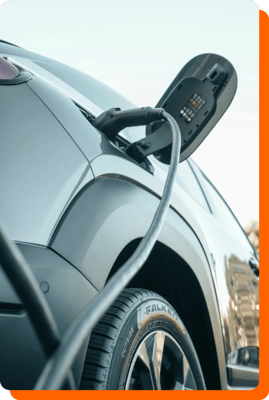
Free EV Fleets Course
Transitioning your commercial fleet to electric vehicles (EVs) can feel overwhelming. But it doesn't have to be.
This comprehensive course, designed by industry experts, covers everything you need to know about EVs, from charging infrastructure and vehicle rebates to operational considerations and environmental impact. Empower your team with the knowledge and confidence to make informed decisions about electrifying your fleet.
Sign up today and walk away with a clear roadmap for converting your fleet to electric vehicles.
Level Up Your Final Mile with Cutting-Edge Technology
Technology plays a transformative role in modern logistics services. By leveraging innovative solutions, distribution service providers can achieve greater efficiency, accuracy, and transparency throughout the entire delivery process. Here are some key technological advancements shaping the logistics landscape:
Warehouse Management Systems (WMS)
These sophisticated software platforms are the backbone of efficient warehouse operations. WMS manage inventory levels, optimize storage space utilization, and provide real-time data on product availability. During order fulfillment, warehouse associates utilize the WMS to locate and pick ordered items, streamlining the process and minimizing errors.
Order Tracking Software
Customers today expect real-time visibility into the status of their orders. Order tracking software provides this critical functionality, allowing customers to track the progress of their shipments and receive estimated delivery windows. This enhances the customer experience and reduces inquiries and support calls related to order status.
Data Analytics
Distribution service providers leverage data analytics to gain valuable insights from their operations. By analyzing historical data on delivery routes, order volume, and potential disruptions, these companies can identify trends and make informed decisions. Data analytics empower them to optimize delivery routes, improve on-time delivery rates, and continuously refine their processes for greater efficiency.
Artificial Intelligence (AI)
AI is transforming logistics by automating tasks, optimizing routes, and predicting demand fluctuations. AI-powered systems can analyze vast amounts of data to identify the most efficient delivery routes, considering factors like traffic patterns, weather conditions, and driver availability. Additionally, AI can predict changes in demand based on historical data and market trends, allowing distribution service providers to proactively allocate resources and ensure on-time deliveries.
Technology plays a vital role in transforming final mile delivery from a reactive process to a proactive and data-driven operation. By embracing these innovations, businesses can ensure a seamless and efficient delivery process for their clients and customers.
Final Mile Services in Logistics
Efficient and reliable delivery is essential for modern business success. Final mile services offer a comprehensive solution to streamline your delivery process and elevate customer satisfaction.
By outsourcing your distribution needs, you gain access to a network of fulfillment centers, transportation options, and technical expertise. This allows you to:
-

Increase efficiency
-

Reduce costs
-

Improve customer experience
-
-

Achieve national coverage
-

Gain scalability
-

Embrace sustainability
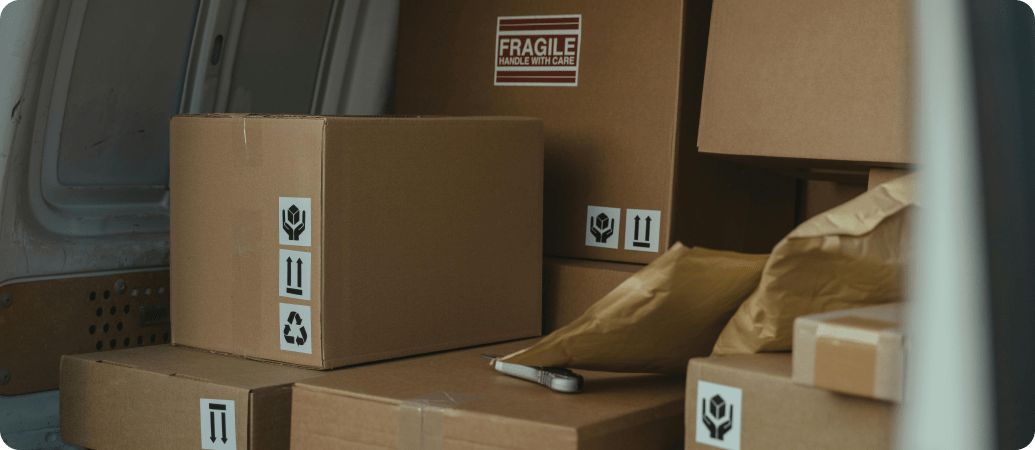
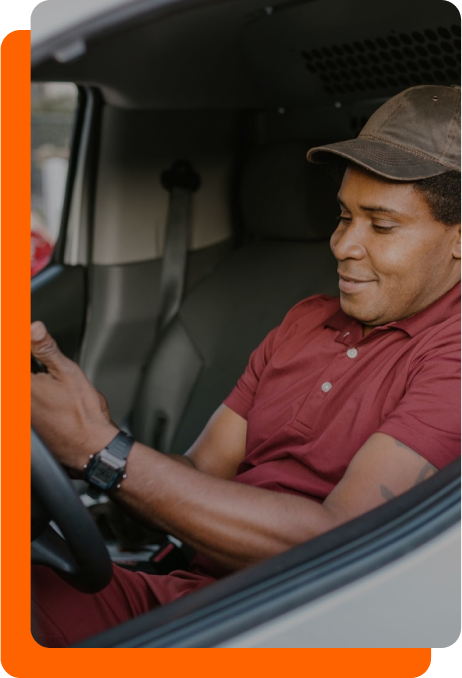
Ziing Final Mile
Ziing provides integrated, automated, and data-driven Final Mile and mid-mile logistics that ensure consistent and reliable deliveries. Whether you’re looking for fixed or dynamic routing, open or closed networks, custom scheduling, or various other delivery services, Ziing is your one-stop shop for final-mile delivery and technology.
-

Exclusive & fractional fleet models
-

Same-day & next-day cycles
-

Pre-0800hr deliveries
-

Mid-mile & LTL
-

White glove service
-

Big & bulky delivery
-

Hyperlocal loops
-

Zero emission deliveries
What is ziing.ai?
Ziing.ai is our technology platform that supports all three operating companies and stakeholders, training and educating users on the features. Leveraging Artificial Intelligence (AI) for your business can be challenging; we strive to remove friction in onboarding processes and training to embed modern technology into your business solutions.
When you work with Ziing, you have access to our conversational agent, “Ziinger,” which helps you navigate the platform and easily find information. Our single sign-on technology combined with multi-factor authentication (MFA) provides a secure environment that facilitates the management of staffing changes you make in your organization.
Our platform is mindful of GDPR (General Data Protection Regulation) law so you can have the peace of mind that the strictest data protection and privacy laws are adhered to. We support mobile (iOS and Android) and desktop interfaces so you and your staff can access the services you need on the go or from the office.
What is Ziing Fulfillment?
At Ziing Fulfillment, we provide e-commerce order management solutions. We utilize existing assets, networks, and ecosystems in Ziing Final Mile to optimize inventory placement and product-to-consumer strategy. We solve capacity issues through ecosystems, not penalties. Our model supports scaling a start-up or positioning a mature business to unlock the value of Mindful Mobility™.
What is Ziing Energy?
Sustainable transportation is a pivotal aspect of today’s global efforts to combat climate change and reduce our environmental footprint. Embracing sustainability is not just a moral imperative but also a strategic necessity. One of the most significant steps a logistics company can take towards sustainability is to start electrifying its fleet of vehicles.
Ziing Energy works with the team at Ziing Final Mile to mobilize your low-carbon fleet through our Exclusive Ecosystem solution. We enable e-mobility and sustainable transportation by leveraging our knowledge of carbon markets and zero-emission vehicles, allowing us to implement profitable environmental solutions. We can help in every step of your fleet electrification journey.
What industries do you service?
Seamlessly blend the local community quality-of-service your customers love with the nationwide network you need. Combine technology and data innovation for an efficient, cost-effective service that provides the experience your customers expect.
Highlighted industries:
- Automotive
- Pharmaceuticals
- Food & groceries
- Agriculture & construction
- Dental & eyewear
Why Ziing?
We do things a bit differently than what you normally expect from an LTL or small package courier model. We have 3 Ecosystems to offer: 1) Exclusive, 2) Fractional, and 3) Co-load. Our Ziing Final Mile business is designed to deliver flexibility, high-quality services, and economical solutions. We achieve this through technology, our decentralized network, and leveraging existing assets.
Our growth drives economic activity that impacts our communities, and we are hungry for the change we can bring. Our 96% client retention rate and 700% growth in the last 5 years has proven beyond a proof of concept.
Find the Best Partner for your Business
Ready to streamline your processes and elevate your customer experience?
Our team of experts will analyze your specific needs and recommend tailored shipping ecosysstem solutions that empower your business to thrive. Let Ziing be your partner in delvering success.
FAQs
Why should I outsource final mile delivery?
Outsourcing final mile delivery can offer several advantages:
- Increased efficiency: Distribution service providers have the experience and infrastructure to streamline fulfillment, saving you time and resources.
- Reduced costs: Leverage economies of scale for lower transportation and labor costs compared to managing your own delivery fleet.
- Improved customer experience: Faster delivery times, real-time tracking, and convenient options like in-store pickup can significantly enhance customer satisfaction.
- Scalability: Easily adapt your operations to fluctuating demand seasons without significant investments in additional vehicles or staff.
- Focus on core business: Free up your time and resources to focus on product development, marketing, or customer service.
What factors should I consider for a final mile delivery model?
The ideal final mile model depends on your specific needs. Here are some key factors to consider:
- Delivery speed: How quickly do your customers need your products?
- Delivery cost: How much are you willing to spend on delivery?
- Order volume: How many shipments do you typically send per day or week?
- Product value and fragility: Do your products require special handling or temperature control?
- Level of control desired: How much control do you need over the delivery process (e.g. scheduling, routing, customization)?
What final mile delivery model is right for my business?
The ideal final mile delivery model depends on your specific needs. Here's a quick breakdown:
- Exclusive fleet (dedicated trucking): Ideal for high-value goods, specific delivery requirements, or maximum brand control.
- Fractional ecosystem (shared trucking): Ideal for predictable shipping needs with moderate volume where speed is important.
- Co-load ecosystem (common carrier network): Ideal for non-critical deliveries where speed is not a major concern.
Can final mile services handle returns?
Yes, many final mile service providers offer reverse logistics solutions to manage customer returns efficiently. This can include pick-up, processing, and even reintegration of returned items into your inventory.
How do final mile services ensure the security of my products?
Security is a top priority for final mile providers. They partner with reputable carriers who utilize secure facilities and employ measures to minimize the risk of loss or damage during transport. Real-time tracking capabilities are available for added peace of mind.
Our recent acquisition of Hubtrotter Logistics means we’ve been able to expand this service area and provide support for more businesses like yours.
How can I compare final mile providers?
Here are some key factors to consider when comparing final mile service providers:
- Services offered: Does the provider offer the specific services you need, such as same-day delivery or cold chain storage?
- Geographic coverage: Does the provider's network cover the areas you need to deliver to?
- Technology integration: Does the provider offer tracking capabilities and integrate with your existing systems?
- Pricing and contracts: What are the pricing structure and contact terms offered by different providers?
- Customer reviews and reputation: Research online reviews and industry reputation to understand the provider's reliability and customer service.
What are the environmental implications of final mile delivery?
Final mile service providers are increasingly adopting sustainable practices such as route optimization, multi-stop deliveries, and the use of alternative fuel vehicles to minimize their environmental impact.



